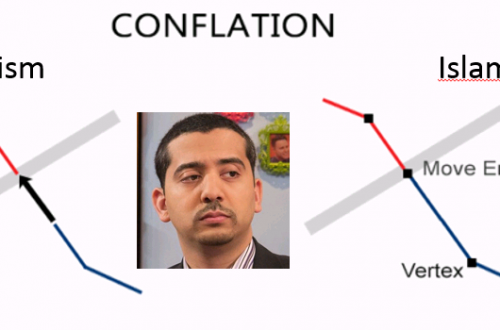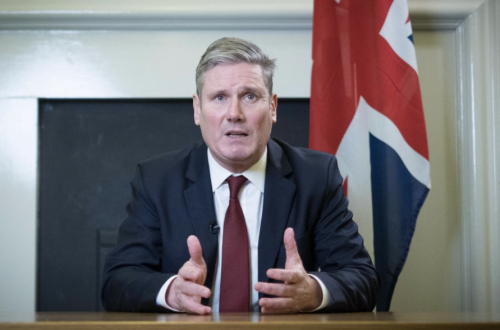This is a cross-post from Jacobinism
This is an extract from towards the end of Jacobinism’s post – do read the whole piece here
[The American liberal essayist Paul] Berman had some interesting things to say on the subject of appeasement as well, finding a useful parallel between the contemporary anti-war left’s refusal to correctly identify pathological Islamic fascism and the corresponding unwillingness of the French Socialists’ Paul Faure faction to understand the true character of National Socialism as the Nazi threat gathered.
The Paul Fauristes, Berman reminds us, were no fans of Hitler. They were, after all, at opposite ends of the political spectrum; as far apart one might think as Rachel Shabi and Anjem Choudary. Nevertheless, at the same time they were terrified by the prospect of further European conflict. They concluded, like contemporary Europeans, that they were not prepared to accept the notion that Nazism was a cult of mayhem, and that a rationalisation of Nazi rhetoric and policy – any rationalisation – would have to be constructed to explain what was happening to Europe. And so in Berman’s words, the Paul Fauristes “grew thoughtful”.
After all, they wondered, was it not unfair and morally reductive to demonise the Nazi party in monochromatic terms? Hadn’t Germany been badly treated at Versailles? Weren’t the German people suffering? Wasn’t it important to locate common ground? Wasn’t conciliation a price worth paying to avoid another continent-wide bloodbath? And although this hysterical stuff about the Jews was rather distasteful, was there not a difference between the legitimate criticism of the ways in which some – or even most – Jews behaved and outright anti-Semitism? Weren’t some of those who favoured a confrontation with Germany Jewish? And as wealthy financiers, did some of them not stand to benefit from such a conflict? And on and on and on. And yet:
The anti-war Socialists of France did not think they were being cowardly or unprincipled in making those arguments. On the contrary, they took pride in their anti-war instincts. They regarded themselves as exceptionally brave and honest. They felt that courage and radicalism allowed them to peer beneath the surface of events and identify the deeper factors at work in international relations – the truest danger facing France. This danger did not come from Hitler and the Nazis, not principally. The truest danger came from warmongers and arms manufacturers of France itself, as well as from the other great powers. [p. 125]
Mutatis mutandis, when Shabi used the word “lunacy” in connection with Woolwich two days later, it was not to describe those who had pitilessly butchered an innocent man in a crowded London street; she used it instead to describe the opinions of The Observer‘s Nick Cohen, who had written a hawkish article on the subject to which she took exception.
There is of course no question that the two individuals suspected of Lee Rigby’s revolting murder present anything like the threat to Western democracies presented by Nazi Germany. The fact that Salafi Jihadis are reduced to the kind of squalid crime committed in Woolwich is, I suspect, an indication of the parlous state of disrepair into which the campaign for global jihad has latterly fallen. But as the controversies over the Danish cartoons and the Innocence of Muslims showed, it can still be mobilised to inspire fear and cowardice in those, like Shabi, predisposed to submit to its illiberal demands.
Other countries are not so fortunate. As the Middle East and North Africa see their secular despots fall to popular revolutions, Sunni Islamism is rising in its place. Pakistan and Afghanistan are in danger of being torn to pieces by jihadi violence. Nigeria, Somalia, Iraq and other countries across MENA are trying to cope with Islamist insurgencies of varying kinds. It is looking increasingly probable that when the dust finally settles on the Syrian catastrophe, that country will find itself governed by Islamists. And in Iran, a deeply anti-Semitic and oppressive Shia theocracy is defiantly pressing ahead with nuclear enrichment. Even Turkey, previously staunchly secular, is moving in an increasingly conservative direction under Erdoğan’s AKP.
So what of the Shia, Ahmadis, Copts, atheists and secularists, and the gays and women who are finding themselves increasingly threatened by theocratic reaction in the Middle East and beyond? What scars have they inflicted upon their Salafist oppressors that explains away their persecution? If the Jews have brought Islamist hatred upon their own heads through the occupation of Palestinian land, then what have, say, Muslim women in Gaza and Iran done to deserve their subordination?
Alas, the ideological pacifism of the Paul Fauristes, so deeply embedded inside the heads and hearts of today’s isolationist Anglo-American liberal Left, provides no intelligible answer. Instead, perversely fortified by the gory horrors religious fanaticism and violence have visited upon the peoples of Iraq and Afghanistan in the wake of their botched liberations, the pacifists declare themselves vindicated. And their demands for appeasement only escalate with every bookstore firebombed, every embassy torched, every innocent victim of fascistic terror and every blood-curdling threat uttered. “Enough!” they cry. “Let them have what they want!”
Liberals like Rachel Shabi and the new Paul Fauristes are able to advocate surrender to fascism because they refuse to recognise it for what it is. Instead they re-describe it as justice and simply screen out any evidence to the contrary. Having once been unwilling to identify and confront unreconstructed medieval savagery, they are now apparently incapable of doing so, even when it is staring them in the face.


